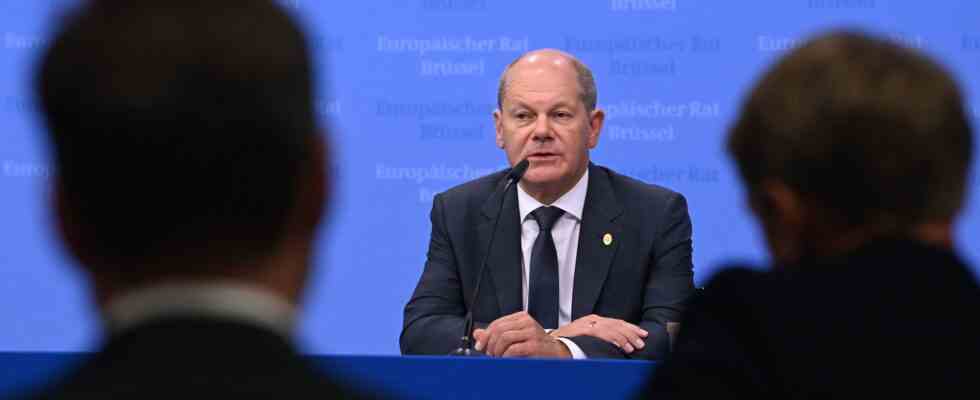Status: 06/24/2022 5:31 p.m
After the decision to make Ukraine and Moldova candidate countries, Chancellor Scholz called for rapid EU reforms. Before the G7 summit, he also addressed the food crisis.
Chancellor Olaf Scholz is pushing for early EU reforms – also so as not to delay the planned enlargement of the European Union. “We shouldn’t put this off for too long,” said the SPD politician after the EU summit in Brussels.
Reforms to make it easier for new members to be admitted would take a while. His impression, however, is that nobody doubts the need for institutional reforms. Therefore, there is also a chance that the necessary steps will be agreed.
Seven formal applicants for EU membership
The EU on Thursday declared Ukraine and Moldova as candidate countries, bringing the number of formal applicants for EU membership to seven. Three other countries are potential accession candidates.
Many EU decisions, especially in the area of foreign and security policy, have to be taken unanimously. This means that the more members there are, the more difficult it is to come to an agreement. That is why there has been a discussion for years about relaxing the unanimity principle. Scholz had also spoken out in favor of this before the EU summit. The problem: That too would have to be decided unanimously.
Scholz said that reforms are necessary soon if the EU wants to be able to absorb other countries in a few years. All 27 member states agreed that the EU could not accept any other countries in its current state.
It is also about the size of the commission. “It cannot be that the quasi-government keeps getting bigger when the number of members increases,” said Scholz. There are currently as many members of the EU Commission as there are EU states.
Scholz calls for prospects for Western Balkan countries
Scholz reiterated that after Ukraine and Moldova, the six countries in the Western Balkans also deserved “just rewards for their efforts”. “They are particularly close to my heart,” said Scholz, referring to Serbia, Kosovo, North Macedonia, Albania, Montenegro and Bosnia and Herzegovina, which have been trying to get closer to the EU for years.
Scholz expressed reservations about the European political community brought up by French President Emmanuel Macron. “What would be a forum of this kind that could be put to good use?” he asked. However, he thinks it makes sense for the 27 EU heads of state and government to meet with other top European politicians to hold political discussions.
Doubts about technical reasons for gas throttling
In his press conference, Chancellor Scholz also reiterated doubts about Russian statements that the throttling of gas supplies was due to technical reasons. “No one in the EU believes that Russia will reduce its gas supplies for technical reasons.”
However, Germany prepared for such a situation early on, he said, referring to the construction of liquid gas terminals. The EU is well on the way to better coordinating energy policy. He does not want to speculate how much one can speed up delivery from alternative gas sources. But many EU countries are working flat out on it. Importing from other countries is a big challenge, “but we’ll come to terms with that.”
Scholz on the hunger crisis: “Clear message” from the G7 summit
Before the G7 summit in Elmau, Bavaria, which began on Sunday, Scholz also blamed Russia for the escalating food crisis. “Russia bears the responsibility for this escalation, and Russia alone,” said the Chancellor in a welcoming address to the international conference on food safety in Berlin.
Referring to the G7 summit, he added: “The summit will send out a clear message to people around the world who are threatened by hunger. We will ensure that your life does not become a plaything for cynical power interests.”
The G7 includes Germany, the USA, Canada, Great Britain, France, Italy and Japan.

